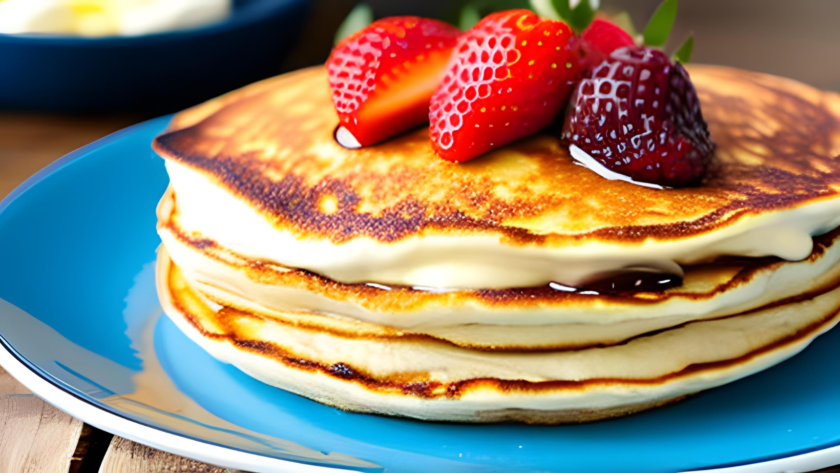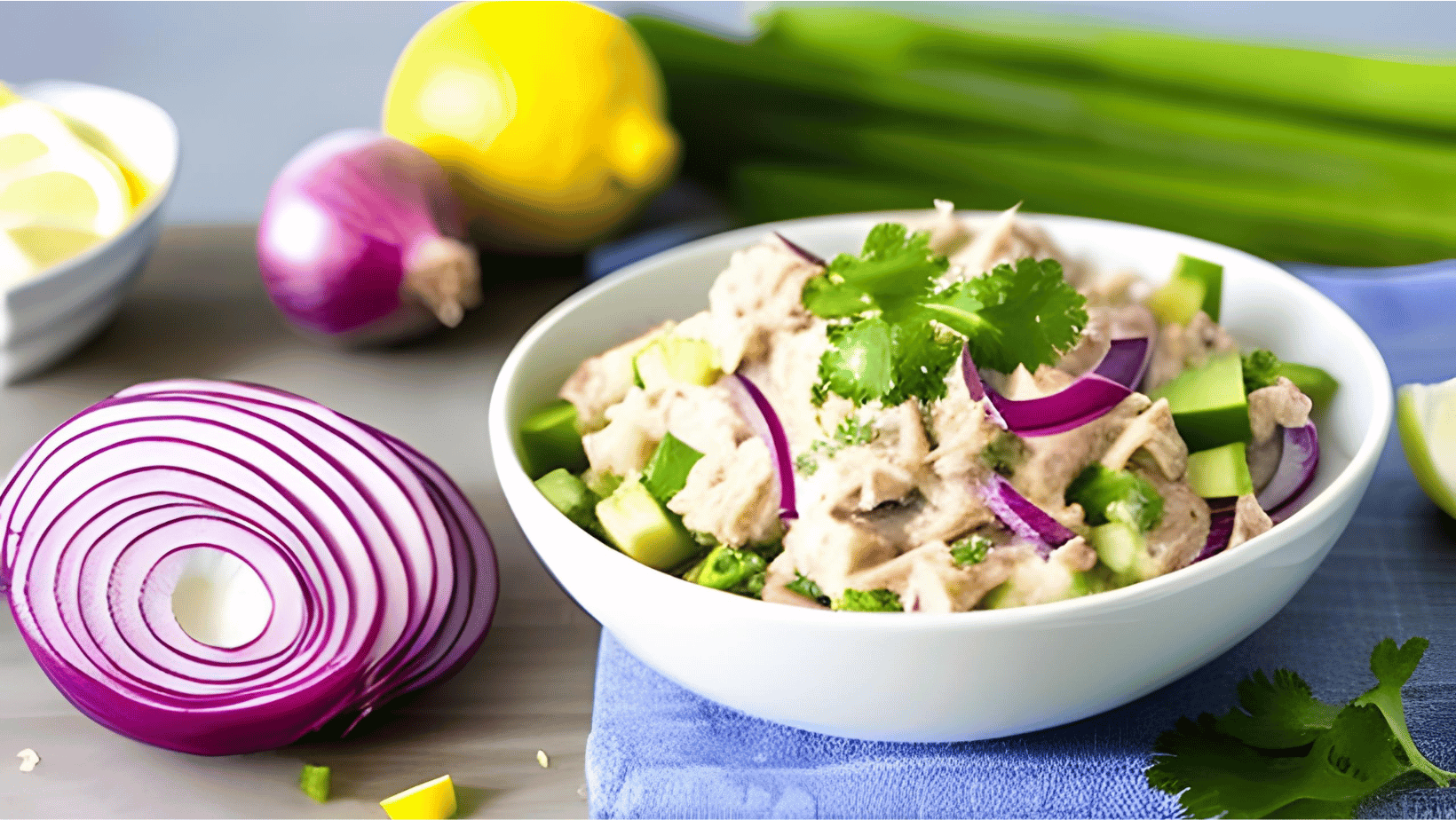Contents
The Rise of Protein Pancakes
When it comes to a balanced breakfast, protein pancakes have taken the spotlight. They’ve become a morning favorite for fitness enthusiasts and foodies alike. Offering a flavor-packed start to the day while satisfying our protein needs, they’ve truly changed the breakfast game.
protein pancakes contain 21 grams of protein per serving.
When it comes to pancakes, the protein content can vary greatly depending on the recipe and ingredients used. Adding protein powder or Greek yogurt to the batter can increase the protein content significantly.
– Kelli McGrane, RD
It’s important to remember that just because a food is labeled as ‘protein’ doesn’t necessarily mean it’s healthy. It’s still important to consider the overall nutritional value and ingredients in the food.
– Kathleen M. Zelman, MPH, RD, LD
Why the Sudden Popularity?
The rise in popularity of protein pancakes isn’t all that surprising. With the growing focus on health and wellness, people are constantly seeking meals that are delicious yet nutritionally dense. And what’s better than starting the day with a stack of fluffy pancakes that are not just satisfying but also packed with protein?
IHOP Protein Pancakes: A Closer Look
As the sun peeks over the horizon, there’s a certain comfort found in a stack of fluffy, warm pancakes from IHOP. But these aren’t just any pancakes – they’re IHOP’s protein pancakes. A hearty, protein-packed treat that promises to give your morning a power-packed start. But are they truly the best? Let’s dive in.
IHOP’s protein pancakes contain 490 calories per serving.
IHOP’s protein pancakes contain 79 grams of carbohydrates per serving.
What’s in an IHOP Protein Pancake?
At first glance, IHOP protein pancakes might seem like a typical stack of pancakes, but a closer look reveals a different story. Each pancake is packed with a mix of eggs, oats, and almonds, providing you with a robust serving of protein. But while the pancakes are undoubtedly rich in protein, they also come with their own share of sugars and carbs, making them somewhat of a double-edged sword nutrition-wise.
IHOP Protein Pancake Hacks You Need to Try
Are you a fan of IHOP’s protein pancakes? You’re not alone. There’s a loyal fanbase for these fluffy, protein-packed breakfast delights.
Fueling Up on IHOP’s Protein Pancakes
Boasting around 15 grams of protein per serving, IHOP’s protein pancakes are a fantastic way to kick start your day. They’re made with whole grains, oats, and egg whites, offering a balance of carbohydrates and proteins to fuel your morning adventures. Not to mention, their sweet, comforting aroma can make any morning feel like a special occasion.
Nutritional Value: Are We Getting the Best of Both Worlds?
But how do these pancakes stack up nutritionally? Each serving (about three pancakes) racks up about 470 calories, with only 15 grams of sugar, which is significantly lower than most traditional pancake offerings. The downside? They pack a solid 850 milligrams of sodium, around 37% of your daily limit. This means that while they’re a protein-rich breakfast, they might not be the best choice for those watching their sodium intake.
Cooking Protein Pancakes at Home vs IHOP’s
Now, what about cooking your own protein pancakes at home? You’d have full control over the ingredients, allowing you to tweak the recipe to your liking and dietary needs. You could use alternatives like almond flour for fewer carbohydrates or add protein powder for an extra protein kick. However, it’s hard to replicate the unique taste and experience that IHOP’s protein pancakes provide. Plus, there’s something about the convenience of having a stack of warm, delicious pancakes served to you without the hassle of cooking and cleaning.
In conclusion, IHOP’s protein pancakes are a delightful, high-protein breakfast option with a few nutritional drawbacks. Whether they’re the best choice for you depends on your dietary needs and preferences, and how much you value the convenience and unique taste experience they offer.
IHOP’s protein pancakes contain 13 grams of fat per serving.
The IHOP Protein Pancake Taste Test
When it comes to taste, IHOP knocks it out of the park. Their protein pancakes have a unique, nutty flavor and a fluffy texture that’s hard to resist. The pancakes are also served with a side of syrup, adding a sweet twist to the otherwise savory dish. However, while delicious, the high sugar content might make you think twice if you’re watching your sugar intake.
How to Cook Perfect Protein Pancakes at Home
When it comes to protein pancakes, focus on using whole food sources of protein such as eggs, cottage cheese, or nut butter instead of relying solely on protein powder.
– Kelli McGrane, RD
Are you a fan of IHOP’s famous protein pancakes but wish you could recreate them at home? Well, you’re in luck! With a few simple ingredients and a bit of know-how, you can whip up your own batch of delicious, high-protein pancakes.
Here’s what you’ll need:
- 1 cup of oats
- 1 banana
- 2 eggs
- 1/2 cup of Greek yogurt
- 1-2 scoops of your favorite protein powder
Step-by-step Instructions:
- In a blender, combine the oats, banana, eggs, Greek yogurt, and protein powder.
- Blend until smooth and let the batter sit for a few minutes to thicken.
- Heat a non-stick skillet over medium heat. When it’s hot, pour in a quarter cup of batter for each pancake.
- Cook until bubbles form on the surface, then flip and cook for another minute or two until golden brown.
And there you have it – your homemade protein pancakes are ready to devour! Not only are they a healthier alternative, but they’re also budget-friendly and customizable to your taste.
IHOP Protein Pancakes vs. Homemade
So, how do IHOP’s protein pancakes stack up against a homemade version? Cooking protein pancakes at home allows you to control the ingredients, reducing the sugar and carb content while still keeping the protein high. However, this comes at the cost of convenience and the distinct IHOP flavor that many love. In the end, it might just come down to personal preference.
In conclusion, IHOP’s protein pancakes are a tasty and protein-rich breakfast option, but they’re not without their pitfalls. Whether they’re the best option for you depends on your personal dietary preferences and needs. Balancing taste, convenience, and nutrition is key.
While IHOP’s protein pancakes may be a convenient option for those on-the-go, making protein pancakes at home allows for more control over the ingredients and can be a more cost-effective option in the long run.
– Kristen Smith, MS, RDN, LD
Protein Pancakes at IHOP
Stepping up to the plate to meet the demand for healthier breakfast options, IHOP introduced their protein pancakes. With their eye-catching presentation and appetizing taste, they’ve quickly become a hit. But the question remains –
Stepping up to the plate to meet the demand for healthier breakfast options, IHOP introduced their protein pancakes. With their eye-catching presentation and appetizing taste, they’ve quickly become a hit. But the question remains – are IHOP’s protein pancakes the best?
Reviewing IHOP’s Protein Pancakes
For breakfast-goers seeking something both tasty and nutritious, IHOP’s protein pancakes offer a promising choice. They’re fluffy, satisfying and, as the name suggests, loaded with protein to kickstart your day. But, do they live up to the hype when their nutritional value is put under the microscope?
Unpacking the Nutritional Value
Each serving of IHOP’s protein pancakes boasts a hefty dose of protein, clocking in at around 20 grams. That’s impressive when compared to regular pancakes, which average only about 5 grams of protein. Additionally, they also provide a good source of fiber, which aids in digestion.
However, it’s worth noting that these pancakes aren’t exactly low in sugar or calories. While they might pack a protein punch, they also come with a fairly hefty calorie count and sugar content. If you’re watching your waistline or sugar intake, this could be a significant factor to consider.
Cooking Protein Pancakes at Home Vs. IHOP
Now, what about whipping up a batch of protein pancakes at home? Certainly, this option gives you total control over ingredient quality and portions. You can adjust the recipe to suit your dietary needs, making it lower in sugar or calories if needed.
But, let’s be real. Not everyone has the time, skills, or inclination to cook a protein-packed breakfast from scratch. And that’s where IHOP gets the upper hand. Their protein pancakes offer a convenient, delicious, and relatively healthier choice for those who prefer dining out or grabbing a quick takeaway.
In conclusion, IHOP’s protein pancakes may not be the best option for everyone, but they certainly have their merits. A balance between nutrition, taste, and convenience, they are a worthy contender in the protein pancake game.
Purchasing IHOP’s protein pancakes can be more convenient than making them at home.
Purchasing IHOP’s protein pancakes can be more expensive than making them at home.
What is the cost comparison between making protein pancakes at home versus purchasing them at IHOP?
When it comes to the cost-effectiveness of IHOP protein pancakes versus homemade ones, it’s a bit of a mixed bag. Sure, buying a stack of IHOP pancakes can seem like an unnecessary expense when you could potentially whip up a batch at home. But, let’s unpack this a bit more.
Cost of IHOP Protein Pancakes
At IHOP, a plate of protein pancakes might set you back anywhere from $6 to $10, depending on the location and any additional toppings you choose. It’s a one-time cost for a meal that’s prepared for you, saving you time and effort. It’s also a treat to enjoy restaurant-quality pancakes without the mess of dishes afterward.
Cost of Homemade Protein Pancakes
On the other hand, making protein pancakes at home involves the cost of ingredients and time. A bag of protein pancake mix, for instance, can range from $5 to $15. Add in the cost of eggs, milk, and any additional ingredients you might fancy, not to mention the cost of utilities. However, a single purchase can yield multiple batches, making it potentially more cost-effective in the long run.
In conclusion, the cost comparison really depends on your personal preferences and circumstances. If you value convenience and a restaurant experience, IHOP may be the way to go. But if you’re watching your budget and don’t mind a little kitchen time, homemade protein pancakes could be your best bet.
Other brand Protein Pancakes
When it comes to protein pancakes, the market is awash with competing brands, each vying for a place at your breakfast table. It’s a jungle of whole grains, protein blends, and all-natural ingredients, all packaged for your convenience. Let’s take a look at some of the key players in the game.
The Protean Contenders
Kodiak Cakes: This popular brand goes big on protein, boasting a whopping 14 grams per serving in their Power Cakes mix. With whole grain wheat and oat flours as the base, these flapjacks are as hearty as they are healthy.
Birch Benders: The micro-pancakery offers a protein pancake mix with an impressive 16 grams of protein per serving. Their secret? A blend of whey, peas, and brown rice proteins for a balanced nutritional profile.
The Verdict
Each brand brings something unique to the table, but the decision ultimately depends on individual dietary needs and taste preferences. Do you prefer a hard-hitting protein punch or a balance of nutrients? Are you looking for gluten-free options or does whole grain dominate your diet? The choice, as they say, is yours.
In the end, IHOP protein pancakes hold their own in the protein pancake world. They offer a solid source of protein and come in a variety of delicious flavors, making them a convenient and tasty option. However, if you’re up for the challenge, whipping up your own batch at home allows you control over every ingredient for the perfect protein pancake that meets your specific needs.









